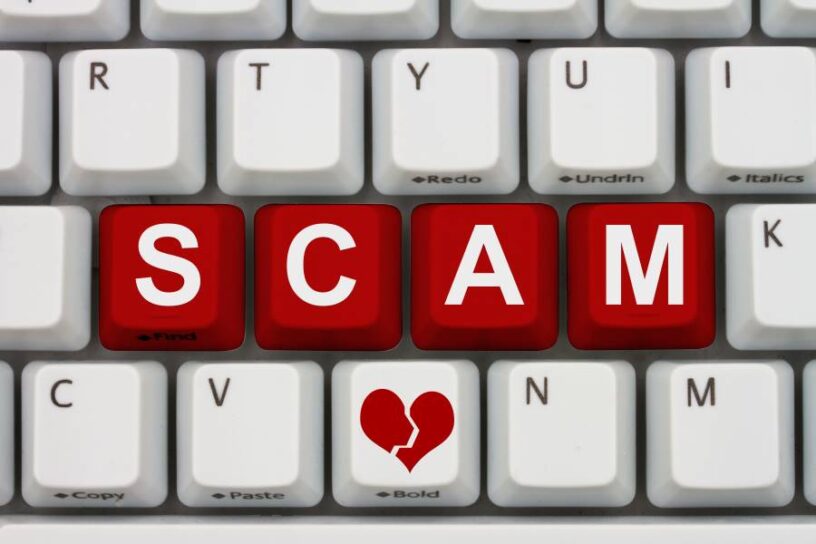Scams prey on people of all ages, socioeconomic origins, and income levels. No particular demographic is more susceptible to scams than another; everyone could fall victim to one at some point. Know the new lurking ground for scams; YouTube. YouTube scams are deceptive.
Scams are successful because they mimic the actual thing and surprise you when you least expect it. Scammers are becoming more sophisticated, using new products, services, and significant events to their advantage to fabricate plausible tales that will persuade you to part with your cash or personal information.
The most common scams by scammers on YouTiube are those who review other products and claim that the other product is a scam. They try to make the review sound legitimate by mentioning some positive points (20%) and then emphasizing the negative points (80%). They then go on to promote their scammy product as a legitimate item.
Sometimes they use reverse psychology and explain why a product is not a scam and that they have used it themselves with great success. Like in the previous example, they will list a few negative points (20%), making them sound trivial, and then emphasize the positive attributes (80%).
Avoid the following on YouTube and stay scam-free.
1 YouTube scams are deceptive so don’t fall prey to get-rich schemes
YouTube is a fantastic platform for entertainment and education. However, it’s essential to be aware that many videos claim you can make easy money quickly. Unfortunately, most of these are scams. There are no easy ways to make money, and if somebody tells you there are, they’re likely trying to trick you. YouTube can be a great source of entertainment and knowledge, but it’s not a place to get rich overnight. Be cautious of anyone who says otherwise.
The popular ones are
YouTube scams are deceptive with cash gifting or pyramid schemes
Many scams on YouTube involve illegal cash gifting or pyramid schemes. These schemes involve promising people quick and easy money for doing nothing more than giving someone else money. The problem is that people who get involved in these scams usually end up losing their money. So, if you’re considering participating in one of these schemes, beware! You could end up getting scammed out of your hard-earned cash.
YouTube scams are deceptive with accounts dedicated to cash gifting schemes
Scam accounts on YouTube that participate in cash gifting schemes have grown. In these scams, quick money gets sometimes promised to the audience in exchange for sending presents of cash to the account holder. The account recipient will then utilize the funds from the gifts to make purchases or cash withdrawals.
There have been numerous cases of people falling for these scams and losing hundreds of dollars. You should use care and perform extensive research on the person or organization before donating money to a YouTube account user as part of a cash gifting scheme.
2 YouTube scams are deceptive so evade randomly clicking on links in descriptions
The descriptions of YouTube videos may contain links to harmful websites. The majority of links will lead you to trustworthy, actual websites. Still, some may direct you to sites where scammers cunningly install malicious code on your computer.
People hunting for complete copies of their favourite movies are the victims of such scams. Children are particularly vulnerable since they will click anything if they think they will get to see their favourite Disney movie. It is best to avoid clicking on doubtful sites.
If you’re ever uncertain whether a website is safe, it’s best not to click on any associated links. It is essential for children, who may be likelier, to click on something without thinking about what it means. Remember, even if a website seems harmless, it could still hide malicious code that could damage your computer.
3 YouTube scams are deceptive so beware of clicking on links in the comments section.
YouTube comments might contain links to dangerous websites. Cybercriminals often post links to other videos in the comments section, and when users click on these links, they’re prompted to update their video player or other software. However, these “updates” are malware or viruses. So unless sure of its authenticity, leave such links in the comments section untouched.
4 YouTube scams are deceptive with videos that can mislead you
Many video adverts may lead you to unknowingly risky locations where opportunistic hackers can easily infect your device using botnets. A botnet is a computer network infected and controlled by a malicious actor to perform automated tasks, often without the users’ knowledge.
Your computer can become part of a botnet by watching videos that get infected with malware, which uses your electricity and drains your machine’s processing capacity. The videos are often played in the mute mode so that you are unaware of the activity in the background.
5 YouTube scams are deceptive so better to activate the restricted mode
It is a setting that will make all videos with outdated or offensive content in their names, descriptions, and other metadata invisible. This way, you and your child won’t encounter harmful links or dubious material. Additionally, turning on Restricted Mode will also make the comments section invisible.
6 YouTube scams are deceptive so download the YouTube Kids App
Overall, YouTube does an excellent job of filtering and recommending age-appropriate content. However, no system is foolproof. The YouTube Kids app initiates parental control over what your child watches, making it harder for them to stumble upon inappropriate content. Such features are worth a try.
7 YouTube scams are deceptive so stop unnecessary Recommendations
It’s easy to disable the “recommended videos” feature on YouTube so your children don’t inadvertently stumble upon something you don’t want them to see. If they spend a lot of time watching videos, they could see something inappropriate if this feature gets left on.
8 YouTube scams are deceptive Protect yourself from YouTube Phishing
The plan is straightforward. The con artists started by creating a new YouTube account and changing the displayed channel name and avatar to look like popular YouTubers. They use a standard YouTube function that lets users show any channel name independent of their account name.
Such fake accounts get used to scam YouTube users by sending them friend requests. They send a friend request on YouTube to anyone using the service. Most of the time, the imposters send them all out simultaneously. These requests contain very little information, so the fraudsters don’t need to post any content to the bogus account to make them appear authentic. Many followers comply with the suggestion without hesitation.
The next stage is to write and send a direct message that is reasonably persuasive. Then, the imposters will send friend requests to many and anyone on the platform. The names of famous YouTubers like Lewis Hilsenteger from Unbox Therapy, Ryland Adams, and others have got impersonated.
Guard against phishing in the following ways
- Verify all friend requests and direct messages to be genuine
- Never provide sensitive information to sites through links you receive over the YouTube platform
- Use reliable antivirus software to receive timely prompts regarding any malicious activity
Conclusion
Scams can devastate anyone but older adults in particular, who may be more trusting or handle their money differently. The best way to avoid scamsters is to know the warning signs. If something seems too obvious to be true, it probably is. Always ask questions, and never give out financial or personal information over the phone, by mail, or on the Internet. Thank you for reading.





